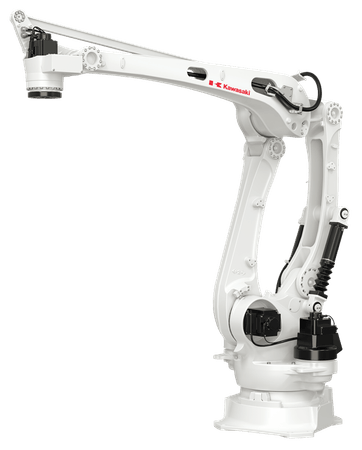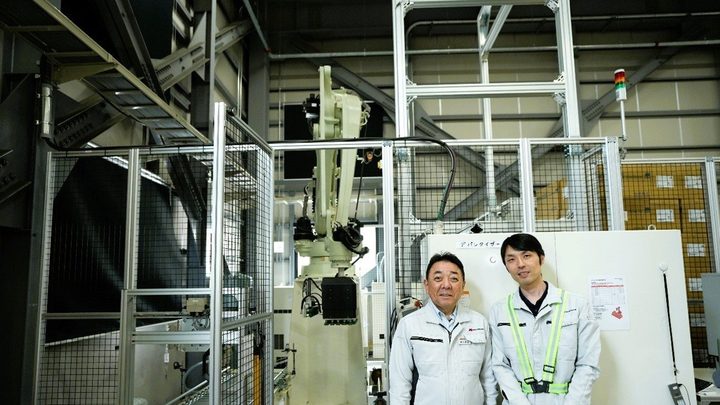
- IndustriesLogistics
- ApplicationsPalletizing
- Robot SeriesCP series
Matsuura Packing & Transportation Corporation Okazaki East Logistics Centre x Kawasaki Heavy Industries, Ltd.
A community-based, proposal-oriented company pioneering the future of logistics
Headquartered in Kakegawa City, Shizuoka Prefecture, Matsuura Packing & Transportation has built a solid track record in the logistics industry for over half a century since its founding in 1968. Today, the company operates 13 locations—primarily in Shizuoka—offering a wide range of services including auto parts transport, warehousing, waste collection and transport, school lunch delivery, and charter bus operations.
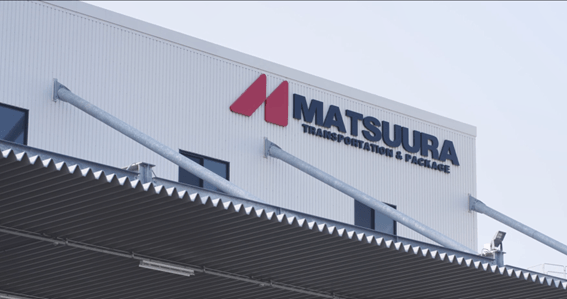
The company distinguishes itself as a ‘proposal-oriented logistics provider,’ going beyond conventional logistics operations to meet customer needs. It adapts to changing times by offering flexible, high-value-added services through the development of proprietary warehouse and inventory management systems.
In keeping with its philosophy of being a ‘people-friendly and people-oriented company,’ Matsuura Packing & Transportation places great importance on coexisting with local communities and actively engages in local clean-up and environmental protection activities as part of its SDGs initiatives.
Against this corporate backdrop, Matsuura Packing and Transport Co., Ltd. adopted Kawasaki Heavy Industries’ Depalletising Solution to tackle issues such as labor shortages and the physical strain on workers. The following section explains the background behind the system’s introduction and its impact.
People-friendly and people-oriented: Introducing robots that embody the company’s philosophy.
Matsuura Packing & Transportation has been engaged in the transportation of automobile parts for over half a century since its founding. Headquartered in Kakegawa City, Shizuoka Prefecture, the company operates 13 locations, primarily in the Chubu and Tokai regions. In 2023, its Okazaki East Logistics Centre introduced an automated solution utilizing Kawasaki Heavy Industries robots, aiming to reduce the physical workload and enhance operational efficiency in response to labor shortages.
The first step toward automation is creating a workplace that is physically accommodating for workers.
In line with its corporate philosophy of being ‘people-friendly and taking care of people,’ Matsuura Packing & Transport has long focused on reducing the physical workload of its employees. Located in an area that includes major companies such as Toyota Motor Corporation, Okazaki faces a chronic labor shortage. Parcel sorting, a core task at the logistics site, was particularly labor-intensive.
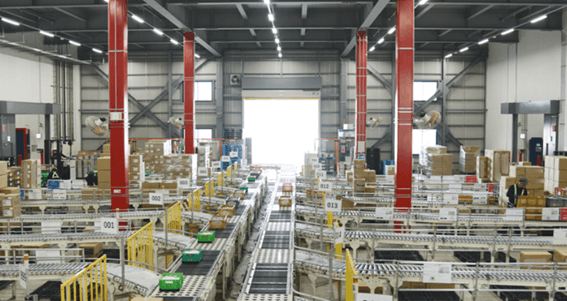
Against this backdrop, the president’s commitment to eliminating physically demanding labor and creating a more worker-friendly environment led the company to begin exploring automation. One day, after witnessing a robot in operation at a client’s distribution center, he initiated concrete discussions about introducing the system.
An additional team member to handle heavy loads in place of workers.
The Okazaki East Logistics Centre receives between 15,000 and 20,000 boxes of cargo daily. Among these, heavy and oversized cardboard boxes posed the greatest physical burden on workers. The newly introduced automated solution is designed to sort such boxes, equipped with a mechanism that can identify various sizes and shapes and handle them quickly and reliably—functioning like ‘another team member’ in place of a human worker.
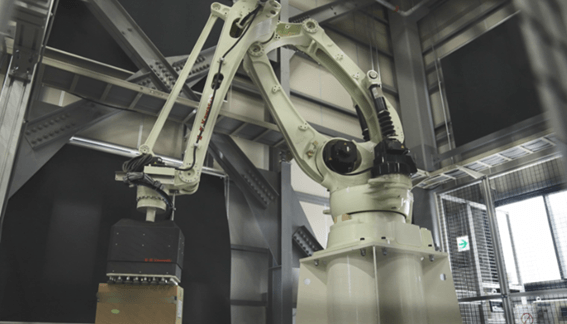
In fact, the sorting line processes approximately 2,000 boxes per day. It can flexibly handle heavy items that would otherwise take longer to manage manually, allowing staff to be reassigned to lighter tasks.
Flexible response to requests and site-optimized robots.
The company evaluated products from other manufacturers but ultimately chose Kawasaki’s solution for its ability to handle various types of cargo and its cost efficiency. ‘The decision was based on the system’s flexibility to meet site-specific needs and its alignment with our company philosophy,’ said the project lead.
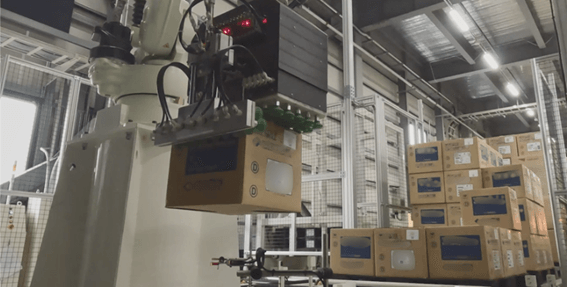
The newly introduced model is equipped with a specialized hand developed to meet the site-specific requirements of Matsuura Packing & Transport. Designed to handle heavy and oversized boxes, the hand also features gripping capabilities tailored to the material and dimensions of each box—a specification that marks a first for Kawasaki Heavy Industries.
Supporting one another helped overcome the anxiety of operating a robot for the first time.
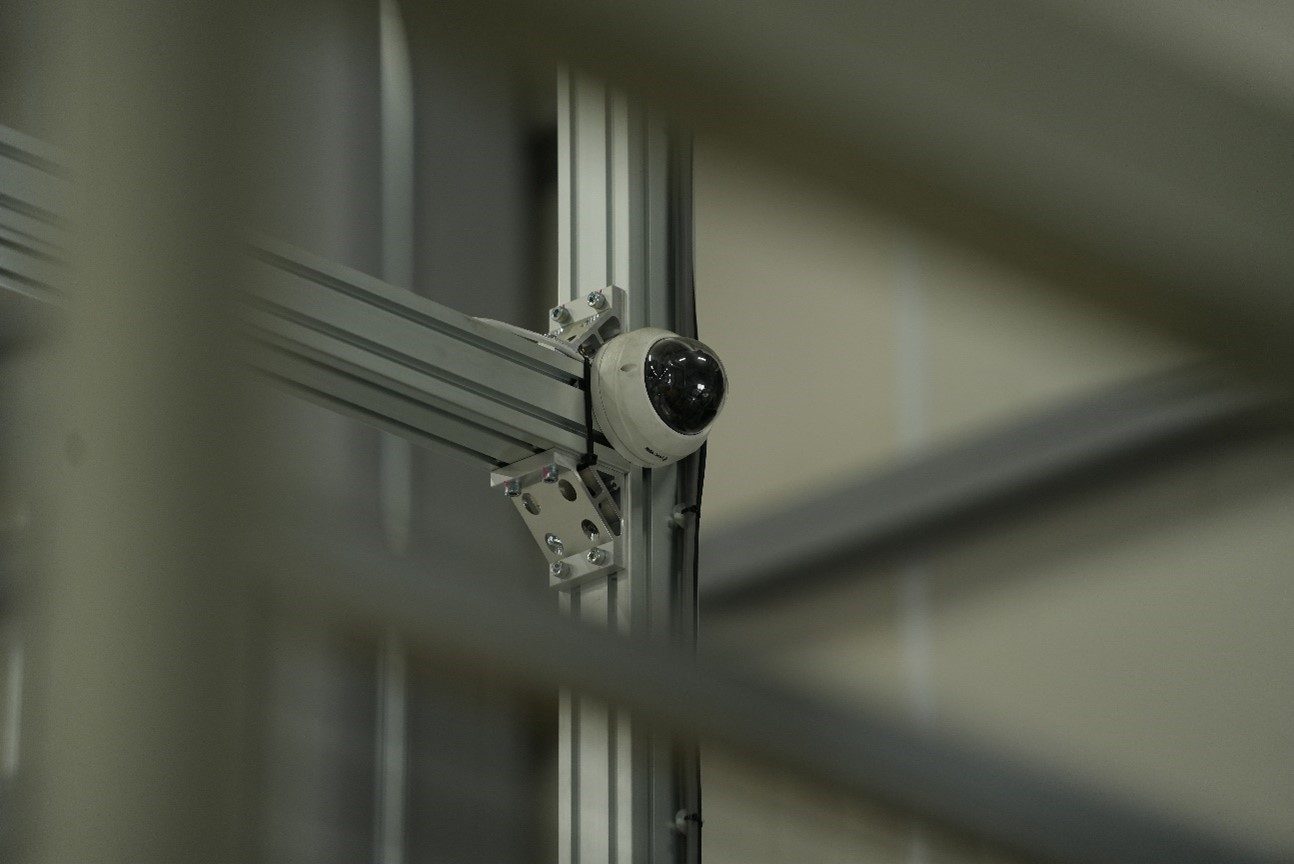
This was the company’s first attempt at operating a robot. Immediately after the introduction of the robot, there were some minor problems and operational errors that left them perplexed. However, Kawasaki’s support team responded quickly and worked together with the site to support the operation. As well as accumulating know-how, the system is now ready to be used on site with confidence.
We can continue using the robot with peace of mind, thanks to a support system that allows us to consult with Kawasaki with just a single phone call. Now that we’ve accumulated operational know-how on-site, we’re confident in using the robots effectively.
Automation has brought both peace of mind and a clear vision for the future.
In addition to reducing man-hours by one person, the introduction of the system has significantly eased the physical burden on operators. In particular, the strain on the back and shoulders caused by handling heavy items has been greatly reduced, leading directly to a more comfortable working environment on the shop floor. ‘Whether the robot is working or not makes all the difference in how tired your body feels,’ says one of the site workers.
Currently, the robots are used only for the sorting process, but plans are underway to expand automation to other tasks such as stacking. Conceptual drawings have already been completed, and the introduction of a second unit is under consideration.
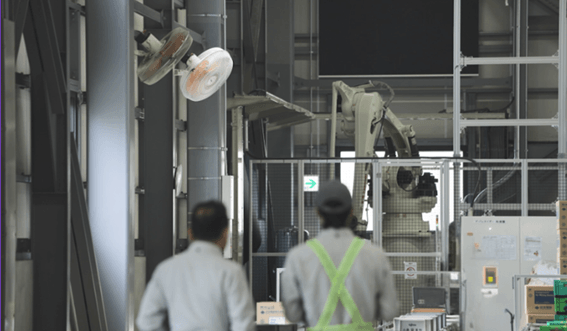
Final Thoughts
The introduction of the robot began with the company’s philosophy of creating a people-friendly workplace. With the support of Kawasaki’s technology and expertise, Matsuura Packing & Transport was able to transform its work environment. These robots do more than automate tasks—they help create a new kind of workplace that protects both the physical and mental well-being of employees. Through collaboration between the two companies, a more sustainable and flexible future for logistics is being built.
